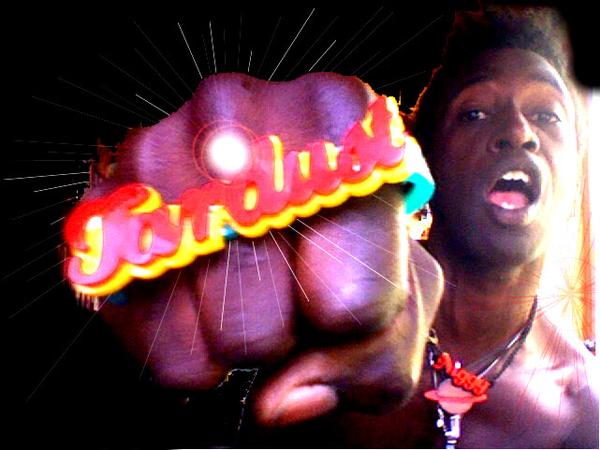It’s tough to get a read on rapper, actor and slam poet Saul Williams. He seems to have a great deal of faith in the average person, but he’s not interested in catering to anyone’s tastes. His work is at once purely self-assured and fragile. Williams’ poetic verse quietly but forcefully makes the case for change while the riotous sounds behind him demand it. For his latest release, The Inevitable Rise and Liberation of Niggy Tardust, Williams worked closely with industrial godfather Trent Reznor, and his presence can be felt in hyper-aggressive synths and Williams’ increasing artistic bravado.Á la Radiohead, Williams released the album online through his website (niggytardust.com) and the first 100,000 purchasers had the option of paying $5 or nothing at all for a downloaded copy.Williams speaks purposefully in a manner befitting someone with a steadfast commitment to lyrical veracity. His record’s success has been matched with a warm reception on tour and, in the midst of his travels, Williams chewed the fat with us. Even saying the name of your album makes me nervous. Was that part of your intent? (Laughs) I guess the role of Niggy Tardust is to get us to raise questions. The word "nigger" is, of course, abhorrent. But the word "niggy" is actually cute. The role of me using that title and the concept of the album was to find a way to continue America’s and the world’s discourse about the word without sweeping something under the rug. I like when other groups hear that word and it resonates with them. We need to realize that, for example, Barack Obama isn’t the only biracial American. In fact, most of us have bi- and tri-racial blood in us, and we need to understand that race is a social construct. So you shouldn’t be scared to say Niggy Tardust, you should be screaming it at the top of your lungs. Do you feel like sometimes your lyrics, as innovative or abrasive as they can be, make people less aware of what’s going on musically in your work? Certainly. Some people get so caught up in the message that they may neglect to realize why the message and the lyricism stand out. Part of the reason I think of the lyrics is because I’m shaking myself up by nodding my head in a different way to a different beat. It forces me into a new way of looking at something. The beats themselves alter the perspective. How did working with Trent Reznor shape your album and you as an artist? I would say it built my confidence. Trent wasn’t someone who was coming to me saying, Oh, I have an idea. Instead, I came to him saying, I have an idea, and he would say, That’s amazing! Let’s try it out. There was a series of confirmations and watching how he was responding to me was amazing. How does the Niggy Tardust concept affect your live show? Essentially, it’s a character, and so in order to get to the place where the music comes from, I have to embody that character. He’s essentially a hero who sees beyond the social construct of race and embodies the music that is hard and colorful. Were you nervous about how financially successful your album would be given the experimental way you released it? No. I wasn’t nervous at all, and I’m super pleased with the results. I’ve never made money off an album until now. There are calls to action in your lyrics and appeals to the power of the masses. Do you ever worry that your desire to experiment musically will turn off people you want to influence with your messages? No. My music is first and foremost for me. I’m writing music that I want and need to hear. A lot of times I’m wishing someone else was doing it and I can’t believe they aren’t. I like when an artist can stand strong within their music and realize the transformative power in it. That’s always exhilarated me. There are people within my musical zone that appreciate what I’m doing and there are others who aren’t, but it’s like, so be it.
Saul Williams hits the Ralli's Fourth Street Pub and Grill stage on Saturday, March 29, for an all-ages show along with Dragons of Zynth. Doors for the early show open at 5 p.m. $12 advance tickets (plus service fee) at Natural Sound and LaunchpadRocks.com.









